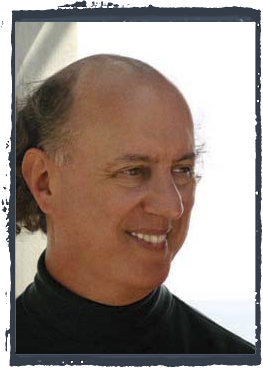James Boyk, 1943–2019, was an internationally known concert pianist who lived in Los Angeles. His interest in the intersection of music and technology was recognized at age one or two when his mother found him facedown on the turntable of the family’s phonograph, pushing himself off from the sides, trying to create music.
He discovered the piano at age three, but was nine before starting to install “hi-fi” systems for relatives and friends. At twelve, he earned an amateur-radio license and performed in public the Moonlight and Pathétique Sonatas, which he says he “had no business playing.”
He studied piano with Elizabeth Gould in Toledo and Henry Harris at Interlochen, Gregory Tucker at Longy School while earning a Harvard BA in mathematics, Aube Tzerko in Los Angeles, and Leonid Hambro at California Institute of the Arts while earning an MFA teaching courses of his own design. He débuted at 16 with the Toledo Orchestra, won Interlochen’s Concerto Contest, toured as soloist in Bartok 3 with the Harvard-Radcliffe Orchestra under James Yannatos, and while still an undergraduate appeared on radio and TV and gave solo and duet recitals.
Boyk went on to a dual career at California Institute of Technology (Caltech), perennially one of the top-rated colleges in the US. In 30 years as Pianist in Residence, he gave dozens of formal recitals, over 800 casual weekly sessions of music and talk attended by students, faculty, staff, and others; and taught private lessons.
In 1979, at the invitation of Caltech president Marvin Goldberger, he began 25 years in a second post, Lecturer in Music in Electrical Engineering, teaching his own course, “Projects in Music & Science,” which was imitated at University of Reading (England) under Prof. Peter Fellgett, FRS. Boyk’s integration of music, science, and technology garnered praise from Caltech students and led a top administrator to say, “What you do is central to this campus.”
Meanwhile, in 1978, Boyk released on Performance Recordings® his concert album of Scarlatti sonatas and Beethoven’s Op. 111. It was designated a “Record to Die For” by Stereophile magazine for its musical and sonic virtues; and its successor albums have been as warmly received on three continents. Boyk was performer, producer and chief engineer for these albums, and has engineering and production credits for audiophile label Sheffield Lab.
James Boyk has given private lessons for almost 50 years. Along the way, he taught at Yamaha International’s gathering of its 100 top North American teachers, where demand for his clinics was such that he gave twice the scheduled number. He also taught students from ten countries at the International Keyboard Institute and Festival, in New York City; a visitor noted that, “Everyone in your class was engaged and involved, commenting, asking questions, laughing.”
He has written for Scientific American, The Los Angeles Times, Harvard magazine, and other popular and scholarly publications. His book, “To Hear Ourselves As Others Hear Us,” has proved spectacularly useful to music students, teachers and performers; and his mystery novel, “Out of Tune Piano Blues,” depicts the joys and pain of the touring performer’s life.
James Boyk is talented well beyond the normal degree granted to genius types. How can he be a professional musician, the instigator of an active series of musical encounters (which he organizes and leads) at Caltech, an active recording engineer, a faculty member in electrical engineering, and a highly active author/consultant, all at once? The reviews, from all the dailies and monthly magazines, read like panegyrics of the great keyboard artists. Performance Recordings is an audiophile’s dream and something of a pianist’s mecca.—Ovation Magazine (USA)
CV: http://www.PerformanceRecordings.com/cv.html
- ”Debussy, Reflets dans l’Eau”
- ”Beethoven, Seven Bagatelles, Op. 33″
- ”Prokofiev, Sixth Sonata: Finale“
- ”Piano Teaching-Moments”
- ”With Cellist”
- ”With Panist”
- ”What I Wish I’d Been Taught”
- Pianist in Residence 1974–2004 http://www.its.caltech.edu/~boyk/
- Lecturer in Music in Electrical Engineering
- Founder/Director of Music Lab, 1979–2004 http://www.its.caltech.edu/~musiclab/
- Music/Talk sessions: Alive! With Music
- Course “Projects in Music & Science”
